The WTCA Trade and Investment Report 2019
Navigating
Uncertainty
Introduction
The world economy is becoming more volatile and growing at a slower pace. These changes have forced businesses to make risky, complex decisions which could add costs to their operations, make them less competitive, or even render them obsolete. Yet new opportunities are emerging for those able to navigate the shifting tides. The 2019 Trade and Investment Report, produced by FP Analytics in collaboration with the World Trade Centers Association (WTCA), illuminates the sources of this uncertainty, the distinctive traits that make cities resilient, and strategies for adapting to the new normal. This study is the result of original city-level data analysis, surveys, and interviews with business leaders from around the world, using the WTCA’s network of more than 325 cities, representing more than 35 percent of global gross domestic product and 1.24 billion people.
An Era of Uncertainty
Navigating the New Normal
Economic uncertainty has been steadily rising throughout the world for the past two years, reaching a record high in 2019. And it may well continue to rise.

Polling found that 83 percent of world business leaders believe that global uncertainty will stay at current levels (30 percent) or get worse (53 percent) in the coming year.
Three consistent themes emerged during interviews with global business leaders.
- That our historical moment has been defined by disruptive political figures who see themselves as agents of change, and who are willing to upend established economic ties and principles.
- The world economy’s future may be even more ominous than the trade and foreign direct investment numbers from global financial institutions would suggest.
- Technology has become the X-factor in this uncertain climate, the most destabilizing force of change and the most fertile source of growth.
In response to Brexit, “some companies are already redirecting their investment to different countries in Europe such as France, Germany, Belgium,” according to Frédérique Dieumegard of WTC Poitiers.
“Technology companies are having to adjust to unexpected data and privacy concerns,” said Brigitta Miranda-Freer of WTC Montana, “but if they are able to navigate that dynamic landscape, it can be to their competitive advantage and that can help the city be more competitive.”

Polling found the biggest risk to the global economic outlook this year will be: Escalating trade tensions (45 percent), geopolitical conflict (28 percent), major economic slowdowns (21 percent), and monetary policy changes (6 percent).
What Works?
Characteristics of Resilient Cities
What makes a city economically resilient? An analysis of data from the past five years found that cities that outperform their countries during economic downturns have a consistent set of traits in common. Regardless of their location or size, these cities all have relatively diversified economies, strong service sectors, educated populations, high shares of foreign citizens, and robust transport infrastructure. And they have defied the odds by attracting investment under adverse circumstances: Their FDI as a percentage of GDP was twice as high on average as that of nonresilient cities. Data analysis and input from WTCA members illustrate what’s working to help cities survive fluctuations in the economy and foster growth.
Bars represent annual changes in GDP growth rates.
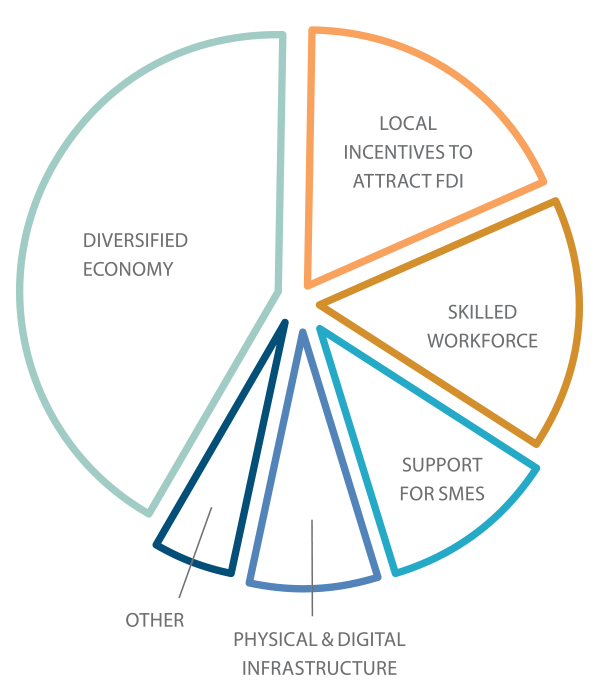
According to global business leaders polled, the most significant factors for building city resiliency are: diversified economy (42 percent), incentives and local support to attract FDI (18 percent), a skilled workforce (16 percent), availability of trade services and support for small businesses (11 percent), developed physical and digital infrastructure (8 percent), and others (5 percent).
Resilient Cities Have Diversified Economies
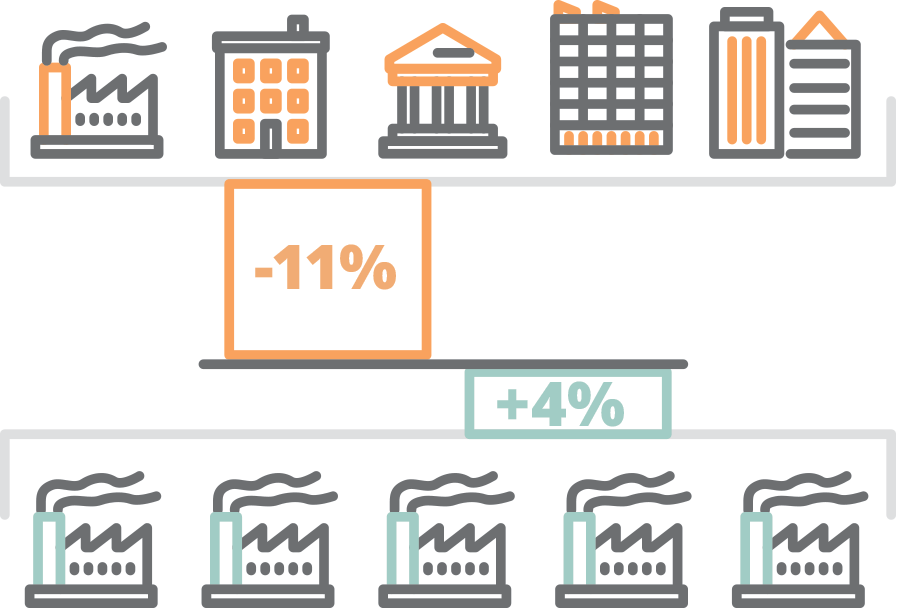
A city’s resilience increases as its economy diversifies. Among cities that faced national economic slowdowns over the past five years, the 25 percent most diversified on average slowed down 11 percent less than their respective countries, while those in the bottom 25 percent slowed down 4 percent more.
Resilient Cities Have Strong Service Sectors

In resilient cities, services’ share of their GDP grew at double the pace of nonresilient cities on average, and they had a higher share of services overall. During the same period, the share of industrials (such as manufacturing, mining, and utilities) in their GDP shrunk by 8 percent—more than 50 percent faster than in nonresilient cities.
Resilient Cities Have Educated and Global Labor Forces

A city’s resilience has much to do with the education of its working population. The number of people with college-level or more advanced education was 8.6 percent higher in resilient than in nonresilient cities.

On average, foreign citizens made up 11.6 percent of resilient cities’ populations, more than a full quarter higher than those of nonresilient cities.
Mariette Mulaire of WTC Winnipeg put it simply and directly: “Immigration is what keeps our economy going..... We count on immigration. No immigration, no growth.”
Resilient Cities Facilitate Movement

The most resilient cities are the most connected ones. Over the past five years, the annual number of airport passengers grew by 44 percent in resilient cities, double the pace of nonresilient cities.

The number of public-transit passengers grew by 4.7 percent in resilient cities over the past five years, compared with just 0.4 percent in nonresilient cities.

World Trade Center
Moscow

Read More
Resilient Cities are FDI Magnets

In the past five years, resilient cities attracted FDI at twice the rate of nonresilient cities as a share of GDP.
“Where there’s uncertainty, the perceived risk is higher, and those that are risk-averse may question moving into emerging markets,” pointed out Jane Reindorf from WTC Accra. “When we think of Africa and development, we need FDI, and as part of that need companies that have innovative technologies to come and set up manufacturing plants, and partner with local companies to expand the local markets.”
How Cities are Leading
Facing global economic uncertainty, cities are working proactively to maintain economic and political ties through city-to-city diplomacy, identifying ways to capitalize on the disruption, and cultivating local economic ecosystems focused on innovation to attract and retain investment.
City-to-City Diplomacy More Important Than Ever
City leaders are engaging in direct diplomacy for a variety of reasons: to deepen economic ties, demonstrate credibility, and instill confidence in old and new trading partners.

World Trade Center
Arkansas

Read More
Identifying Ways to Capitalize on the Disruption
Cities are working to become more agile, using their geography, language, political ties, and other strengths to seize new trade and investment opportunities created by economic turmoil. As Brexit looms, and as the trade tensions between the United States and China continue, many cities are presenting themselves as lower-cost, lower-risk partners for trade and investment.
Eugenio José Reyes Guzman of WTC Monterrey noted, “Monterrey has taken advantage of the fact that there's currently a trade war between the U.S. and China. We’re attracting Chinese companies to take advantage of the USMCA [United States-Mexico-Canada Agreement] and re-export to the U.S.”
“Foreign companies are looking at Ireland as a first stop into not just the U.K., but the rest of Europe,” said Rani Dabrai of WTC Dublin.

World Trade Center
Accra
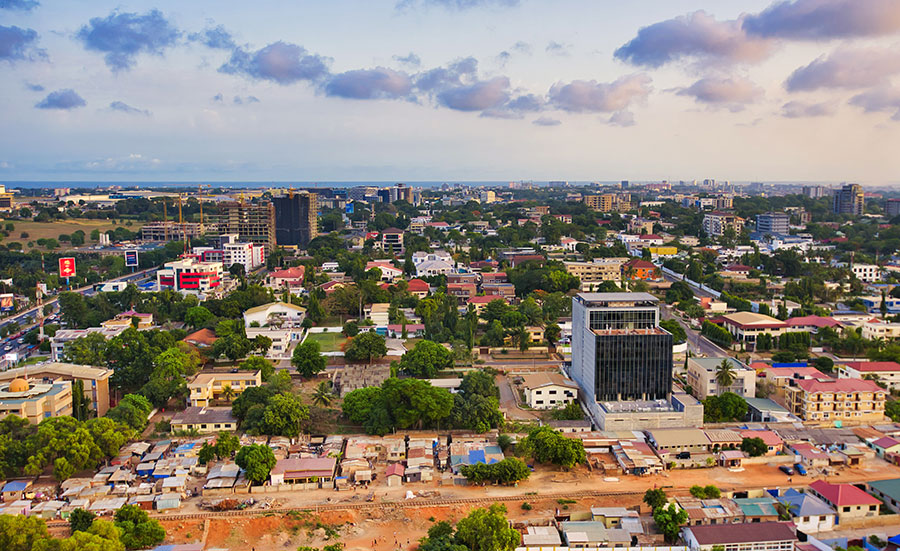
Read More
Cultivating an Ecosystem that Attracts and Retains Investment
As FDI becomes scarcer, competition for it will only intensify. The most successful cities are fostering not only businesses and economic growth, but also a high quality of life, in order to attract sustainable investment that will strengthen the community and make it more resilient. Such a strategy demands:
- A strategic vision that takes advantage of local assets and competitive advantages
- An attractive fiscal and tax environment and business-friendly policies
- Transparent public planning and decision-making
- Clear channels for ongoing dialogue between the private sector and local authorities
Focusing on Innovative Industries to Drive Future Growth
From financial-technology hubs in Montreal, Montana, and Accra, to biotech and information technology industries in Noida, Philadelphia, and Poitiers, to an industrial engineering defense cluster in San Diego, cities are focused on:
- Modernizing industries in which they have a competitive advantage
- Partnering with major research institutions
- Creating integrated technology clusters to become leaders in rapidly evolving and high-demand sectors.
Looking Ahead
Tools for Navigating the New Normal
Knowledge, preparedness, and agility are essential for remaining competitive in the increasingly complex global economy. Through briefings, trade training, and partnerships, WTCs around the world are helping businesses in their communities more effectively assess complex risks, game out scenarios, and seize emerging opportunities.
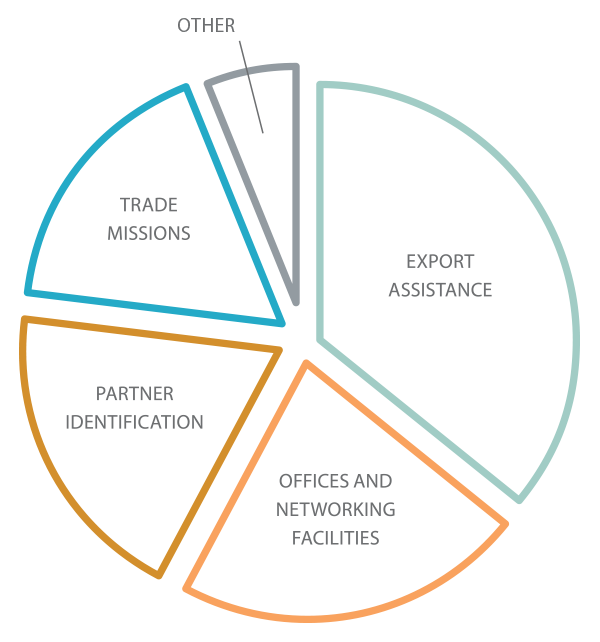
The most important services offered by WTCs polled include: export assistance (36 percent), office and networking facilities (22 percent), partner identification (19 percent), trade missions (17 percent), and others (5 percent).
Keeping Informed
WTC representatives observed that uncertainty has been causing confusion, hesitation, and even retrenchment among their members. To respond to this fear, WTCs are providing constant up-to-date data and analysis on economic and geopolitical changes, arming their members with information to help them cut through the noise and evaluate which factors are critical to their business.

World Trade Center
Rennes Bretagne
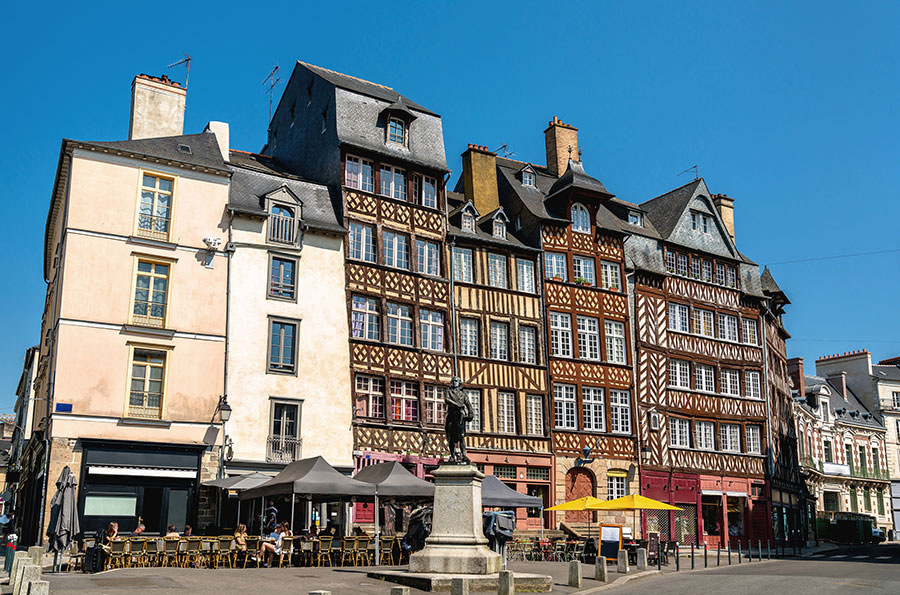
Read More
Acquiring Hard Skills for More Effective Global Engagement
Demand is rising for services to help businesses begin or expand trade or investment overseas. With trade training, preparation, and ongoing support, businesses can respond more deftly to changing market conditions, manage risks, and seize new opportunities to build their business. This is particularly relevant for small- and medium-sized enterprises, which can adapt more quickly to changing conditions in the economy.

World Trade Center
Toronto

Read More
Leveraging Networks to Go Local
Dialogue between businesses is also essential for keeping up trading relationships and finding new opportunities. International trade missions have long helped make such connections possible, but direct business-to business connections are taking on heightened importance.

World Trade Center
Algiers
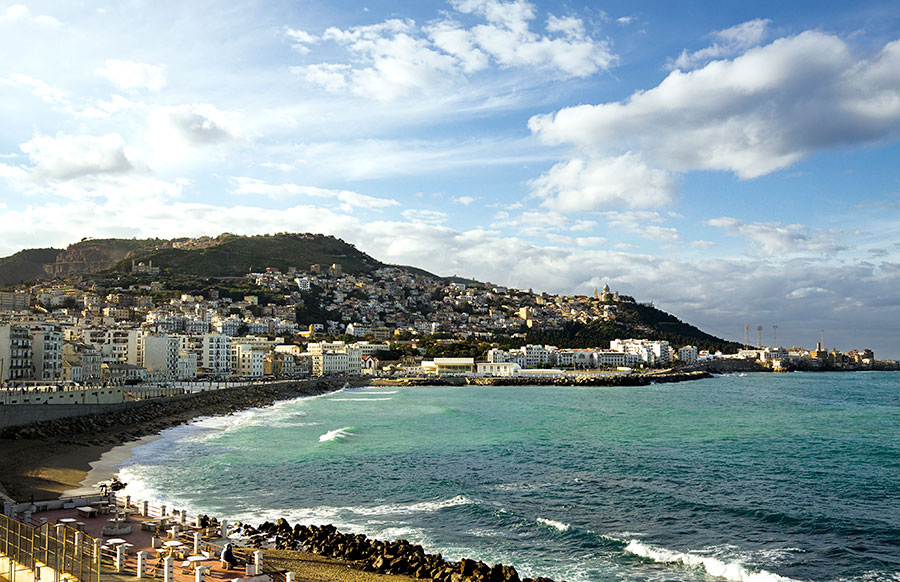
Read More
